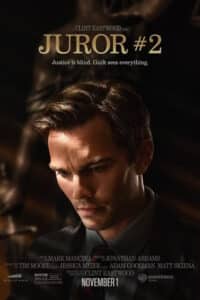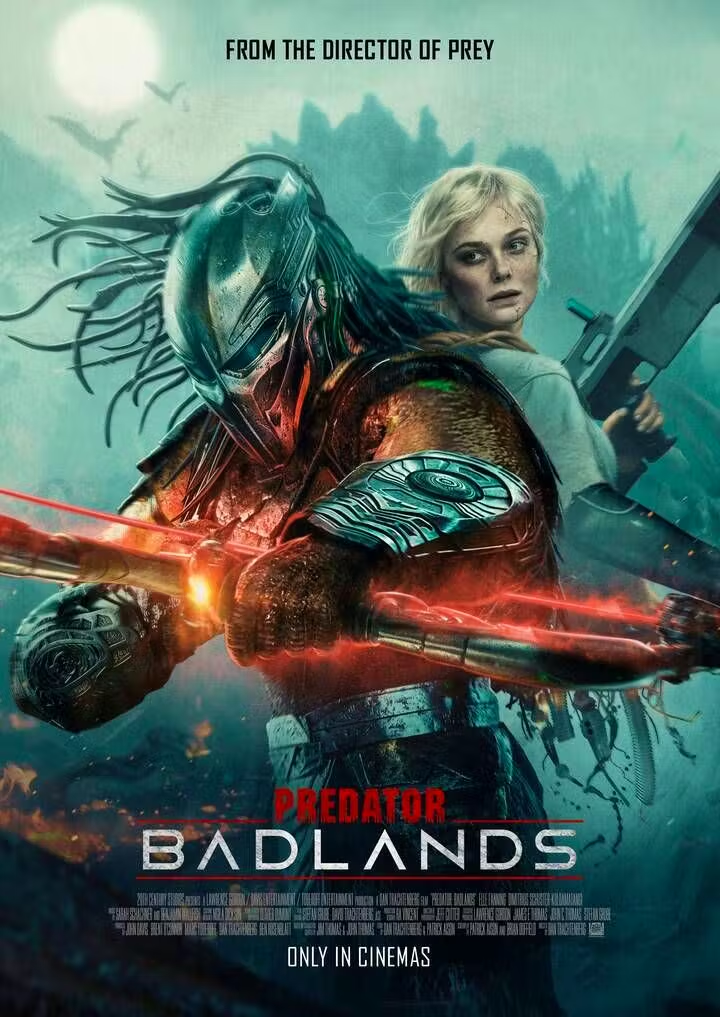
Juror #2
Justin Kemp, a young man with an alcoholic past and a future as a father – his wife is expecting their daughter – is summoned as a juror in a sordid murder case on the outskirts of Savannah, Georgia. The victim, Kendall Carter, was presumably beaten to death and abandoned in a ditch after a violent argument with her boyfriend, a repentant member of a neighborhood gang. The ideal culprit for the twelve jurors and the county attorney in the midst of an election campaign. Faith Killebrew lays out the facts and the vertigo increases. Justin, juror number 2, gradually realizes his guilt in the tragedy that occurred a year earlier, in the middle of the night, on the same road where he was convinced he had hit a deer. Under a pouring rain of memories, the perfect husband discovers he is an involuntary murderer and finds himself facing a moral dilemma: confess, exonerating the defendant, or evade justice, condemning an innocent man?
It is Justin Kemp’s wife about to discover the ‘son’s room’, which her husband has set up as a surprise for her. The band falls and the camera adopts the wife’s point of view on this “good man”, a reformed alcoholic with whom she has decided to start a new life.
Clint Eastwood has no more time to waste, at 94 years old he continues to shoot with the regularity of a metronome and gets straight to the point, plunging us into a marital (mise en)scene, an image that the film will quickly put into crisis. Juror Number 2 constantly plays with the motif of the visible and the invisible, the obvious and the hidden: the blindfolded bride, the protagonist blinded by the storm, the witness confused by the distance, the prosecutor ‘blinded’ by his career… The author spends his time highlighting the blind spots, what the characters do not see or do not want to see. But it’s all there, in full light. The photography is clear, the lighting uniform, the framing pushed to the maximum point of excellence, and yet everyone looks without seeing. And here lies the depth of the film, much more than in the moral dilemma that the hero must face and that requires only one right choice. It is not so much the morality itself that is called into question, but our ability to grasp the facts to which to apply it.
Eastwood begins by meticulously informing us about one of the fundamental aspects of the American judicial system, the rigorous selection of the twelve members of the popular jury. With the scrupulous logic of Sidney Lumet (The Jurors), he delves into the beliefs and then the doubts of the jurors who confront each other, one after the other, but with the perverse idea that the best juror, the one who like Henry Fonda does not want to hasten the fate of the accused, is none other than the guilty one. No spoilers, it’s all in the trailer and in the debut of the film. Through flashbacks, he (de)monstrates that juror number 2 is almost certainly at the origin of the criminal act. If the folding of guilt within the circle of jurors suddenly deprives the viewer of any future suspense, the great originality of Jonathan Abrams’ script consists in developing another form of ascending tension, gradually tightening the noose around his antihero in the grip of an unsustainable dilemma. So while all the jurors are convinced of the guilt of the accused, Justin, consumed by guilt, buys time and tries to convince those who only want to quickly close.
It’s one minute to midnight in the garden of good and evil, justice has done its job and in the end the police too, under the aegis of a retired policeman, removed from the trial because he transgressed the rules of impartiality in his role as a juror. The character played by J. K. Simmons reminds us that we are in a Clint Eastwood film and that from Dirty Harry onwards, the policeman remains the subject of the exception, always ‘over the limit’ for the rules of the institution. But he soon leaves the field, he is an evanescent mediator. ‘Juror number 2’ remains, the one who knows the end of the story and gets to the bottom of this story, in which the appeal to the impartiality of justice demonstrates all its abstraction. It is a fiction undermined by the tangle of reasons and feelings that pervades the jurors: the young woman who wants to avenge a victim of sexism or the educator who lost a brother in a gang war and recognizes in the defendant’s tattoo his membership in one of the gangs. All are driven by a desire for idealism but all have a personal history that they must deal with.
Clint Eastwood composes with the jury, with the prosecution and with the defense, identifying the psychological complexity of each of his characters and deploying the gravitas of the film in the interactions between the characters. No role, not even the smallest, gives in to caricature, going through intimate conflicts and revealing at the same time the fragility of the American legal system, when prejudices and deep assumptions prevail over concrete evidence, sometimes even with the sincere conviction of doing good. But like his prosecutor, the moral compass of the film, Eastwood does not stop looking for the truth to look it in the face in a suspended final sequence that sounds like the last open injunction of an author who no longer has anything to prove. Not interested in impressing anyone, he uses cinematic storytelling to constantly reflect on what he thinks, summoning a metaphysical vertigo. An ode to reasonable doubt and complexity in contrast with the current polarization of our societies and the ancient reflex of settling for the most comfortable and immediate explanations.
If the dysfunction of American institutions can only lead to lies, that lie ends up insinuating another form of institution: the American family. The author penetrates the heart of the reassuring and ideal family structure, veering towards tragedy or the point of no return (Mystic River, Million Dollar Baby…). The damage has been done and evil settles in the domestic hearth where Justin converses with his wife at the beginning of the film. She walks away and inadvertently leaves him in the dark, reflexively turning off the living room light. A harmless gesture that says a lot. The good American citizen, ordinary but virtuous, pillar of the democratic system, falls into the night that inhabits him despite himself, darkness has entered his life long before the film begins. Justin, the reverse of Richard Jewell – innocent that public opinion considers guilty -, is a former alcoholic and the glass that he never touched that evening in the pub where the defendant argued with the victim does not stop tormenting him and amplifying the abyss. The glass is the circle in which he remained trapped, his scar, the crack through which he fell and sinks. Never drunk and ‘overturned’ is the extension of the torrential downpour of Unforgiven, it is the black and heavy water of Mystic River with which Juror Number 2 shares an unpronounceable truth and an inferior morality: punishing the ideal guilty while sparing the fate of a deserving average American family.
Nicholas Hoult is not Henry Fonda, the pure and upright man, but a tormented anti-hero who seeks the best way out. If he wants justice, he does not want it at any price. The actor, laser-like in his gaze, cold beauty and rigid posture, faces a moral hell and makes every hesitation, fear and doubt palpable. In front of him, a reflection of Eastwood’s vanished youth, Toni Collette’s pugnacious prosecutor ends up deserting the court, going beyond the verdict and carrying on the fight. An extremely contemporary (and feminist) reversal of political strategy. The ambiguity that characterizes the protagonist of Juror Number 2, both avenger and guilty party who attends his own trial and must deliberate on the fate of a man and his own, adds a new stone to the building that the director has built.
Yesterday, Eastwood’s hero asked us to understand him and even love him, today he is a bastard who betrayed the moral law for his own interests. Yesterday he voluntarily gave his life and took it. His hiring was the foundation of his veneration, first ostentatious then increasingly discreet. But Justin Kemp is a world apart from Eastwood’s protagonist. An individual who finds himself facing extraordinary situations, like Richard Jewell or Captain Sully, caused by him. The moral aporia leads him to a dead end where it becomes impossible to follow him. Forgiven by those closest to him, Justin is nevertheless the unforgiven to whom justice presents the bill and no redemption. Perhaps this is Eastwood’s testament, to have always been where you don’t expect him: behind the door that opens onto the unfathomable mystery of human conscience, inside an epilogue that plays out on the faces of an actor and an actress, in the heartbreaking conclusion (?) of a filmography that has never stopped looking itself in the face.
In a country where the (factual) truth is denigrated or totally ignored, Clint Eastwood takes an indispensable position.








